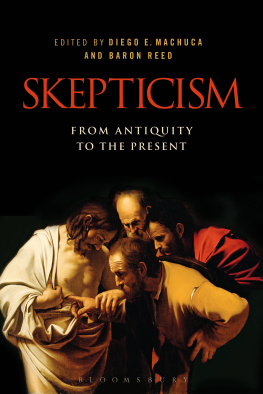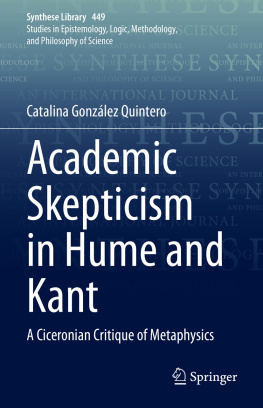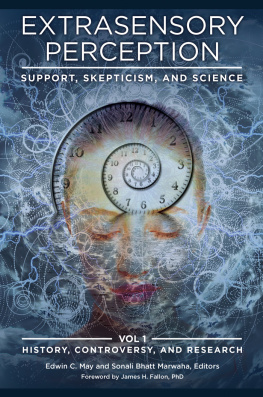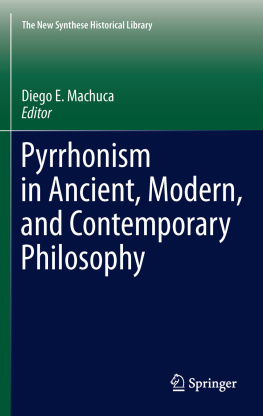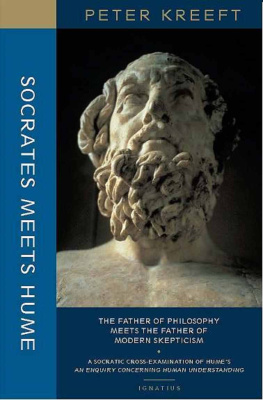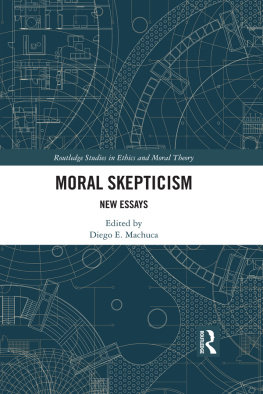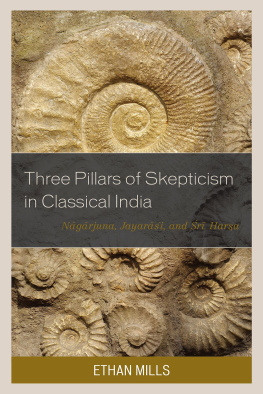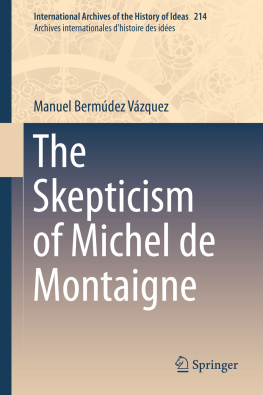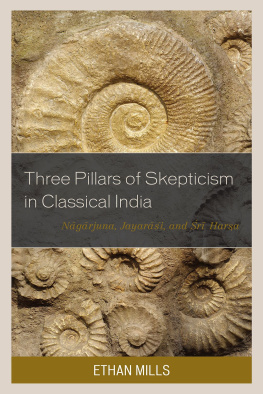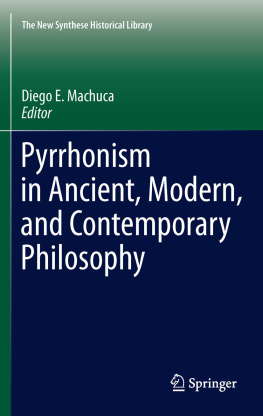Diego Machuca - Skepticism: From Antiquity to the Present
Here you can read online Diego Machuca - Skepticism: From Antiquity to the Present full text of the book (entire story) in english for free. Download pdf and epub, get meaning, cover and reviews about this ebook. year: 2018, publisher: Bloomsbury Academic, genre: Science. Description of the work, (preface) as well as reviews are available. Best literature library LitArk.com created for fans of good reading and offers a wide selection of genres:
Romance novel
Science fiction
Adventure
Detective
Science
History
Home and family
Prose
Art
Politics
Computer
Non-fiction
Religion
Business
Children
Humor
Choose a favorite category and find really read worthwhile books. Enjoy immersion in the world of imagination, feel the emotions of the characters or learn something new for yourself, make an fascinating discovery.
- Book:Skepticism: From Antiquity to the Present
- Author:
- Publisher:Bloomsbury Academic
- Genre:
- Year:2018
- Rating:4 / 5
- Favourites:Add to favourites
- Your mark:
Skepticism: From Antiquity to the Present: summary, description and annotation
We offer to read an annotation, description, summary or preface (depends on what the author of the book "Skepticism: From Antiquity to the Present" wrote himself). If you haven't found the necessary information about the book — write in the comments, we will try to find it.
Skepticism: From Antiquity to the Present is an authoritative and up-to-date survey of the entire history of skepticism. Divided chronologically into ancient, medieval, renaissance, modern, and contemporary periods, and featuring 50 specially-commissioned chapters from leading philosophers, this comprehensive volume is the first of its kind.
By exploring each of the distinct traditions and providing expert insights, this extensive reference work:
- covers major thinkers such as Sextus Empiricus, Cicero, Descartes, Hume, Spinoza, and Wittgenstein.
- acknowledges the influence of ancient skeptical traditions on later philosophy and explains why it is still a fertile topic of inquiry among todays philosophers and historians of philosophy.
- analyzes various forms of skepticism including Pyrrhonian, Academic, religious, moral, and neo-Pyrrhonian.
- addresses issues in contemporary epistemology and indicates new directions of study.
Skepticism, a driving force in the history of philosophy, remains at the center of debates in ethics, philosophy of religion, epistemology, and the philosophy of mind. Skepticism: From Antiquity to the Present is an essential point of reference for any student, researcher, or practitioner of philosophy, presenting a systematic and historical survey of this core philosophical topic.
Diego Machuca: author's other books
Who wrote Skepticism: From Antiquity to the Present? Find out the surname, the name of the author of the book and a list of all author's works by series.

